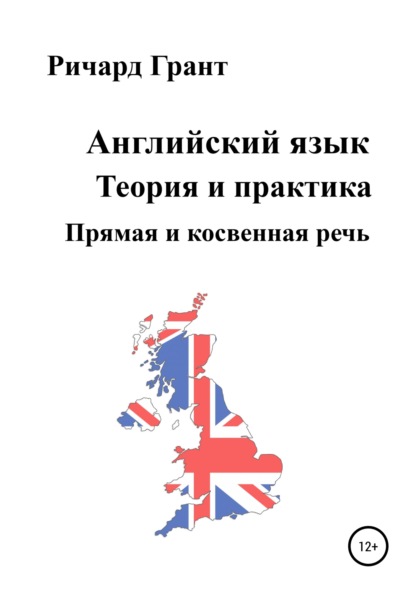Direct speech: “I saw the UFO.” – «Я видел НЛО.»
Indirect speech: He claimed that he had seen the UFO. – Он заявил, что видел НЛО.
complain – жаловаться
Direct speech: “You never share any secrets with me!” – «Ты никогда не делишься со мной секретами.»
Indirect speech: She complained that I never shared any secrets with her. – Она жаловалась, что я никогда не делился с ней секретами.
admit – признавать
Direct speech: “I was really unfriendly to him.” – «Я действительно была с ним враждебна.»
Indirect speech: She admitted that she had been unfriendly to him. – Она признала, что была с ним враждебна.
deny – отрицать
Direct speech: “I didn’t break your favorite cup!” – «Я не разбивал твоей любимой чашки!»
Indirect speech: He denied that he had broken the cup. – Он отрицал, что разбил чашку.
exclaim – воскликнуть
Direct speech: “I am so happy!” – «Я так счастлив!»
Indirect speech: He exclaimed that he was very happy. – Он воскликнул, что был счастлив.
explain – объяснить
Direct speech: “You see, there’s no point in going there right now.” – «Видишь, нет причины идти туда прямо сейчас.»
Indirect speech: He explained that there was no point in going there at that moment. – Он объяснил, что не было причины идти туда в тот момент.
recommend – советовать
Direct speech: “You’d better stay at home.” – «Тебе было бы лучше оставаться дома.»
Indirect speech: She recommended that we stayed at home. – Она советовала, чтобы мы остались дома.
prove – доказывать
Direct speech: “See, the system works.” – «Смотри, система работает.»
Indirect speech: He proved that the system worked. – Он доказал, что система работала.
state – утверждать
Direct speech: “I have never seen the young man before.” – «Я никогда не видел этого юноши раньше.»
Indirect speech: The witness stated that she had never seen the young man before. – Свидетель утверждал, что никогда раньше не видел того юноши.
promise – обещать
Direct speech: “I will be back no later than eight o’clock.” – «Я вернусь не позже 8 часов.»
Indirect speech: Dad promised that he would be back no later than eight o’clock. – Папа пообещал вернуться не позже 8 часов.
suggest – предлагать
Direct speech: “Shall we spend the evening together?” – «Мы проведем вместе вечер?»
Indirect speech: He suggested that they spent the evening together. – Он предложил провести вечер вместе.
assert – утверждать
Direct speech: “Nuclear power is a safe and non-polluting kind of energy.” – «Ядерная энергия безопасна и не приводит к загрязнениям.»
Indirect speech: The scientists asserted that nuclear power is a safe and non-polluting kind of energy. – Ученые утверждали, что ядерная энергия безопасна и не приводит к загрязнениям.
contend – заявлять
Direct speech: “The Earth may be much younger than previously thought.” – «Земля может быть гораздо моложе, чем думали раньше.»
Indirect speech: Some astronomers contend that the Earth may be much younger than previously thought. – Некоторые астрономы заявили, что Земля может быть гораздо моложе, чем думали раньше.
Упражнения
Запомните:
this ? that
here ? there
today ? that day
tomorrow ? the next day
Упражнение 1
Передайте следующие повелительные предложения в косвенной речи.
1. “Explain to me how to solve this problem,” my friend said to me. 2. The teacher said to me, “Hand this note to your parents, please.” 3. The doctor said to Nick, “Open your mouth and show me your tongue.” 4. Oleg said to his sister, “Put the letter in an envelope and give it to Kate.” 5. “Don’t be afraid of my dog,” said the man to Kate. 6. “Please help me with this work, Henry,” said Robert. 7. “Take this book and read it,” said the librarian to the boy. 8. “Please bring me some fish soup,” he said to the waitress. 9. The doctor said to Pete, “Don’t go for a walk today.” 10. “Don’t worry over such a small thing,” she said to me. 11. “Don’t eat too much ice cream,” Nick’s mother said to him. 12. “Please don’t mention it to anybody,” Mary said to her friend. 13. “Go home,” the teacher said to us. 14. “Promise to come and see me,” said Jane to Alice.
Упражнение 2
Передайте следующие повелительные предложения в косвенной речи.
1. “Buy some meat in the shop,” my mother said to me. 2. Не said to us, “Come here tomorrow.” 3. “Sit down at the table and do your homework,” my mother said to me. 4. I said to Mike, “Send me a telegram as soon as you arrive.” 5. “Don’t forget to clean your teeth,” said granny to Helen. 6. Father said to me, “Don’t stay there long.” 7. “Don’t sit up late,” said the doctor to Mary. 8. Peter said to them, “Don’t leave the room until I come back.” 9. “Take my luggage to Room 145,” he said to the porter. 10. He said to me, “Ring me up tomorrow.” 11. “Bring me a cup of black coffee,” she said to the waiter. 12. “Don’t be late for dinner,” mother said to us. 13. Jane said to us, “Please tell me all you know about it.” 14. She said to Nick, “Please don’t say anything about it to your sister.”








 Рейтинг:
0
Рейтинг:
0